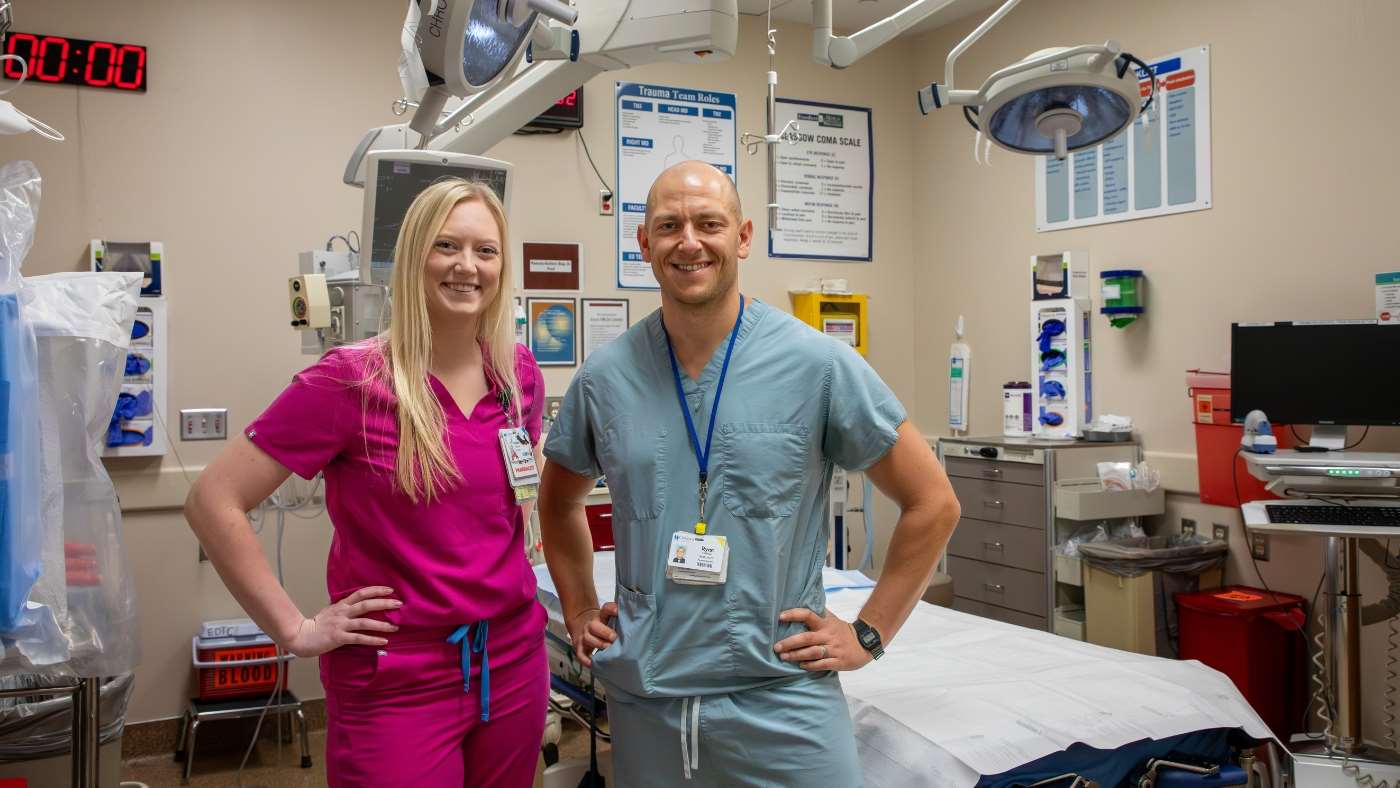Investigating the Drug Effect of Antibiotic on Intoxicated Patients in the Emergency Room

There’s a longstanding practice in medicine that patients admitted to the emergency room with alcohol in their system should not be given the antibiotic metronidazole. Combining the two is purported to cause a disulfiram-like reaction – an unpleasant syndrome of nausea, vomiting, flushing and fast heart rate.
A new paper published in the Wisconsin Medical Journal by an MCW School of Pharmacy assistant professor and an alumna investigates where this mandate comes from and whether it’s necessary.
“The whole purpose of this paper is that I’m personally offended by medical myths that force healthcare providers to do things for no reason,” says Ryan Feldman, PharmD, BCPS, DABAT, a clinical assistant professor and emergency medicine clinical pharmacist at Froedtert Hospital.
“There’s a lot of myths in medicine. When you really drill down into the evidence for why we do certain things, sometimes it’s not there,” adds Dr. Feldman.
The reason this drug effect is thought to occur, Feldman explains, originates from one case report from 1961. A patient was given metronidazole three different times. His wife reported that he may have had a disulfiram-like reaction, but it was never documented in a medical setting. This report was enough for the drug manufacturer to include a warning that the antibiotic should not be taken with alcohol.
Where this becomes a problem is when metronidazole is the only antibiotic that can be used to treat an emergency room patient’s specific infection. Dr. Feldman and then-student, now alumna, Rachael Jaszczenski, PharmD, completed a retrospective chart review to document disulfiram-like reaction symptoms of patients who were intoxicated versus patients who were intoxicated and given metronidazole, and found there was no significant differences in the symptoms they had.
Dr. Jaszczenski participated in the study during her third year of pharmacy school in her emergency medicine rotation at Froedtert Hospital with Dr. Feldman. She assisted with developing the protocol for the study and led the data collection process.
The critical thinking skills she developed while working on this project with Dr. Feldman are what Dr. Jaszczenski values most. “The information at the basis of this research project is really interesting and important to know about,” Dr. Jaszczenski explains, “but the overarching concept of learning to ask different and better questions to get the core of what you’re curious about is something I took away from this project and has been really helpful in my residency and my career now.”
“They say that research is what changes practice oftentimes in medicine,” says Dr. Feldman. “We want learners at MCW to become familiar with the research process and how to ask a question that might change how people prescribe medicines in the future.”
Now as a pediatric pharmacist at Children’s Wisconsin, Dr. Jaszczenski says she values helping families get through a potentially terrifying situation involving their child. She also enjoys utilizing her critical thinking skills.
“There are a lot more adult pharmaceutical guidelines than pediatric ones,” Dr. Jaszczenski explains. “We do have guidelines that make a lot of sense, and that we can follow to ensure everything is as safe as possible, but we do have a gray zone where we’re often evaluating literature and trying to find the best situation for each specific patient without a lot of evidence.”
Dr. Jaszczenski earned her PharmD in 2021. “At MCW, the accessibility of resources – for evidence collection or human resources – is unmatched,” she says. “I could walk from the classroom to rotation in ten minutes, and our preceptors were available because many of them are MCW faculty.”
The paper published in the Wisconsin Medical Journal is available online.
In addition to his work as an emergency medicine clinical pharmacist, Dr. Feldman is a clinical toxicologist at the Wisconsin Poison Center, where he triages and provides medical recommendations for poisoned patients. He has a podcast where he debunks medical myths and helps other providers become more familiar with toxicology concepts. The Poison Lab podcast is available on the website or wherever you get your podcasts.




